Speaking to Listening Machines: Literary Experiments with Aural Interfaces
Ana Marques da Silva
Reading practices have changed along the course of history. Before the ‘democratization’ of the written word - from Homer's Iliad to the medieval troubadours and to more recent public and private oral reading traditions -, reading has long been associated with listening. Today, in the age of algorithms and ‘smart’ interfaces, the sharing of language between humans and computational devices is increasingly ubiquitous and, with the standarization of artificial intelligence systems like Siri, Cortana, and Google Now, we are starting to speak and to listen to machines. In the field of digital literary creation, one example of aesthetic reflection on the questions raised by such networked ‘smart’ interfaces is John Cayley's The Listeners (2015), "a linguistic performance — transacted by visitors and Amazon’s voice-activated Artificial Intelligence and domestic robot, Alexa" (Cayley, 2015b). Through an analysis of The Listeners, articulated with Bernard Stiegler’s notion of the digital pharmakon, this paper aims to reflect on the encounter between literature and digital technologies. Three ideas will be highlighted: 1) the ways in which the technical, economic and political layers that constitute our digital devices pre-determine their usage (how they operate and are operated); 2) the automatic processing of language and orality as interfaces of mediation between humans and “smart” devices; 3) the literary implications of aurality and aurature.
Un/Official Worlds
Gregory L. Ulmer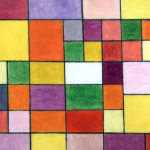
In this review of Mark Seltzer’s The Official World, Ulmer reflects on the interdependence of “the official” and “the unofficial” in contemporary constructs of reality.
Before Corporate Monoculture
Alfred Thomas
In this review of Henry Turner’s The Corporate Commonwealth, Thomas considers how Turner historicizes the term “corporatization” to explore its wide-ranging definitions and functions in early-modern England.
The Corporate Commonwealth: Pluralism and Political Fictions in England, 1516-1651 Henry Turner, Chicago UP, 2016
Towards Buen Vivir
Robert Lestón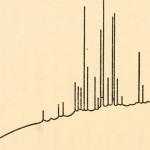
In this review of The Power at the End of the Economy, Lestón delineates the theoretical apparatus of Massumi's book and its possible implications.
The Economics of Book Reviews
Jeffrey Di Leo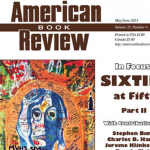
In a review of the contemporary publishing marketplace in the U.S. and the many definitions of "corporate fiction," Di Leo, editor of the American Book Review, offers some insights into the new economics of digital publishing and how ABR's recent decision to partner with ProjectMuse ended the "online poaching" of the magazine's content.
An Ontological Turn
Kieran Smith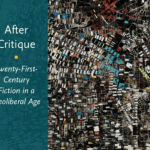
In this review of Mitchum Huehls’ After Critique, Smith situates Huehls' “ontological approach” to the study of contemporary literature as arising from and standing in opposition to the "zombie plague" of neoliberalism.
A Digital Publishing Model for Publication by Writers (for Writers)
Scott Rettberg, Joseph Tabbi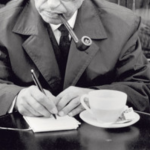
How might literary databases be seen as alternatives to the commodification of academic scholarship in for profit, subscriber platforms? Scott Rettberg and Joseph Tabbi discuss issues related to instrumentality, the global marketplace, and the digital humanities.
Academia.“edu”
Johannah Rodgers
Investigating the question of whether academics should be concerned that Academia.edu is not an educational institution, Johannah Rodgers finds that the answers depend on your definition of “education” and which parties you ask.
Ghostbusters 2.0
Ralph Clare
If the 1984 Ghostbusters film can be read as an early foreshadowing of the neoliberal transformation of the United States of America, how might the film’s 2016 sequel be interpreted? Ralph Clare reviews the new film in the context of his reading of the original in his 2014 book Fictions, Inc.
Love Your Corporation
Henry S. Turner
Analyzing the long and complex history of the term corporation, Turner explores the possibility that the term's roots in the universitas might serve as a basis for a re-translation and re-valuation of the corporate concept and establish a ground, both discursive and practical, for a reassessment of the “political” as a process of imaginative transformation and collective action.
Back to the Book: Tempest and Funkhouser’s Retro Translations
Jeneen Naji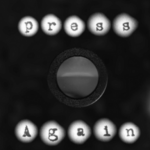
Jeneen Naji describes Chris Funkhouser’s Press Again and Sonny Rae Tempest’s Famicommunist Poetics as examples of “the UnderAcademy style” begun by Talan Memmott. At the same time, within the context of post-digital publication, Naji explores concepts like "transcreation" and "translation" insofar as the two digital practitioners have conveyed experimental e-texts into print.
Precarity or Normalization? Yes, Please! A Review of Isabell Lorey’s State of Insecurity: Government of the Precarious
Emilio E FeijóoIn this review, three social conditions of the Precarious (“precariousness, precarity, and (governmental) precarization”) are described. Furthermore, the neo-liberalist use of self-regulation as a means to exert control over individuals is exposed. The possibility to turn precarity into “a form of political mobilization,” as suggested by Lorey, is also explored.
Digital Ekphrasis and the Uncanny: Toward a Poetics of Augmented Reality
Robert P. Fletcher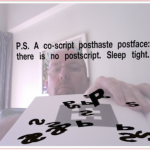
In this essay, Robert P. Fletcher demonstrates how, while putting together digital and print media affordances, augmented print may evoke in readers a sense of the uncanny. Fletcher also explains how works such as Amaranth Borsuk’s Abra (2014), Aaron A. Reed and Jacob Garbe’s Ice-Bound (2016) or Stuart Campbell’s Modern Polaxis (2014) seem to demonstrate the existence of a never-ending return of the “familiar” in electronic literature.
Debates in the Digital Humanities formerly known as Humanities Computing
Roberto Simanowski, Luciana Gattass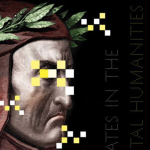
In a review that addresses (and exposes) the founding myth of the "digital humanities" (DH), formerly known as "humanities computing,” Roberto Simanowski and Luciana Gattass measure just how much the 99 articles collected by Mathew Gold and Lauren Klein have overturned "academic life as we know it."
Aurature at the End(s) of Electronic Literature
John Cayley
Amazon’s Alexa, Apple’s Siri, Microsoft’s Cortana, and Google Now: How will our encounters with these intelligent personal assistants - robots we’ve invited into our homes to speak with and listen to us, who share this data with vectorialist institutions that monitor our networked transactions - alter both human language and our efforts to lead meaningful lives? In a wide-ranging, philosophical essay that exposes various myths of computation while presenting a candid assessment of the rapidly evolving culture of reading, poet John Cayley speculates that literature will be displaced by aurature. Listen up, readers: A major challenge in the programming era will be to develop linguistic aesthetic practices that intervene significantly and affectively in socio-ideological spaces thoroughly saturated with synthetic language that are largely controlled by commercial interests. The time for aesthetic experiments that disrupt the protocols of a still-nascent aurature is now.
This essay was reprinted in part for the Handbook on Electronic Literature (Bloomsbury 2018).